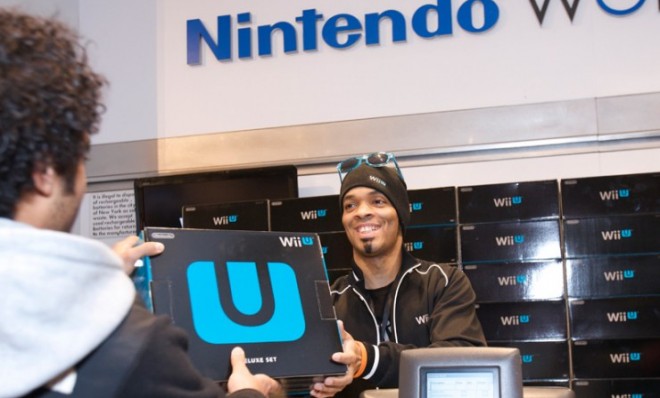The Wii U sells out in its first week: Evidence of a Nintendo comeback?
The latest console from the videogame pioneer is flying off the shelves. But are the kids really still into Mario and Zelda?


A free daily email with the biggest news stories of the day – and the best features from TheWeek.com
You are now subscribed
Your newsletter sign-up was successful
Earlier this year, Nintendo posted its first annual loss in three decades, a grim omen for the pathbreaking videogame maker that introduced the world to classic characters like Mario, Donkey Kong, and Link. The Japanese company has struggled amidst an industry-wide decline in the sales of consoles and games, a trend partly attributed to the ever-growing popularity of tablets and smartphones. Nintendo's last breakout success was the Wii, released in 2006, and there have been serious doubts that its successor, the Wii U, could sell as many units. However, since the Wii U went on sale in North America on Nov. 18, Nintendo has completely sold out of all 400,000 consoles shipped to retailers. "As soon as the Wii U hits the shelf, it's selling out," said Reggie Fils-Aime, the head of Nintendo's U.S. operations.
The Wii U's early success is a surprising indication of "strong demand for the company's next generation of videogame devices," says Ian Sherr at The Wall Street Journal. And during the week of Nov. 18, Nintendo also sold 300,000 units of the original Wii, as well as more than 500,000 units of its portable DS and 3DS systems, which could reflect a rebound in consumer demand as the economy continues its long slog of a recovery from the Great Recession. Nintendo says it expects to sell 5.5 million Wii U systems by the end of March 2013, the end of its fiscal year.
However, it's important to remember that "Nintendo has a very dedicated audience that craves almost anything new the company has to offer, not unlike Apple's fans," says Nick Wingfield at The New York Times. "The real test of the Wii U's durability will come when the product is in better supply and more casual gamers, who don't dream about Mario and Zelda in their sleep, can more easily buy it." In addition, rivals Sony and Microsoft are expected to unveil their new consoles sometime in 2013, putting extra pressure on Nintendo.
The Week
Escape your echo chamber. Get the facts behind the news, plus analysis from multiple perspectives.

Sign up for The Week's Free Newsletters
From our morning news briefing to a weekly Good News Newsletter, get the best of The Week delivered directly to your inbox.
From our morning news briefing to a weekly Good News Newsletter, get the best of The Week delivered directly to your inbox.
And perhaps most importantly, Nintendo has to sell games. The Wii U — which retails for $299.99, and $349.99 for a more powerful model — is being sold at a loss. Nintendo hopes that users will continue to buy games in the years to come, particularly those that aren't sold on other systems, such as the latest installments in the "Super Mario Bros." and "Legend of Zelda" franchises. That's among the keys to Nintendo's future profitability.
Sources: The Los Angeles Times, The New York Times, USA Today, The Wall Street Journal
A free daily email with the biggest news stories of the day – and the best features from TheWeek.com
Ryu Spaeth is deputy editor at TheWeek.com. Follow him on Twitter.